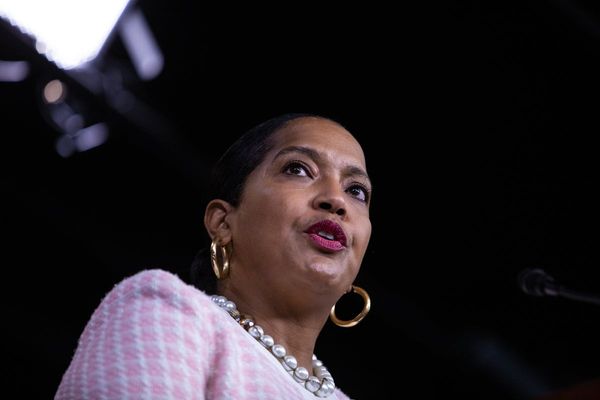
Is democracy in danger? The short answer is yes. But a better answer is, its survival is up to us. To tweak the famous quote by former French prime minister Georges Clemenceau that war is too important to be left to the generals, democracy is too important to be left to prime ministers and presidents.
If we let our current crop of heads of states and their representatives decide everything about how we do democracy, we are doomed.
There are signs of democratic regressions everywhere — a few examples from the Asia-Pacific include Myanmar and Thailand, which have rewritten their constitutions to give more power to the armed forces, and Indonesia, which revoked a law barring people with family ties to incumbents running in regional elections and has seen political cronyism return in the 2020 regional election.
Conventional wisdom says this is the signal of the rise of autocrats, which is true, but what’s happening more widely and deeply is how incumbent political elites have been strategically chipping away at the systems of checks and balances that challenge their powers. The result is marginalisation of other forms of leadership as the autocrats attempt to centralise and control every single aspect of life.
Digital media technologies have made this fantasy of control even more pervasive, and transnational corporations working in digital surveillance and data collecting have been more than happy to provide their services.
But countries are not just about heads of states, government departments and corporations. Look beyond the headlines and you will see people doing important work to protect and shape democracies, many of whom are also using digital media technologies to spread their influence.
From pro-democratic activists in Thailand fighting to revoke the legacy of the 2014 military coup to comedians such as Sakdiyah Ma’ruf and the twitter account @NUGarisLucu who use humour to challenge the rise of conservatism and authoritarianism in Indonesia, and many others in between, the Asia-Pacific is full of networks of people shaping the futures of democracy either by being involved in the traditional frameworks of politics or by working from the margins.
One of my favourite examples from Indonesia is Voice of Baceprot, an all-female, all hijab-wearing, Indonesian punk band who released its single “God, Allow Me (Please) to Play Music” last year. In its own way since 2014 it has challenged the increasing influence of hardline Islamic political movements in Indonesia while also challenging international media’s depiction of them that too often focuses on appearances rather than what they are doing with punk and Islam.
Margaret Thatcher probably had a point, to an extent, in that there is no such thing as society, only individuals and families. A point Eleanor Roosevelt also made when she was the chair of the drafting committee of the Universal Declaration of Human Rights, that without our concerted and consistent actions to uphold human rights close to home, “we shall look in vain for progress in the larger world”.
In other words, saying that democracy is dying is to miss the point that democracy, like any political system, is always dying — and is always alive.
Hence the biggest complacency that we could ever have about democracy is the belief that we have “progressed” to it as a modern society and that it’s simply here to stay.
Democracy is not a statue on a pedestal threatened to be toppled, or worse, to become so irrelevant that its only function is to be shat on by pigeons.
Democracy is an organic, ever-changing collection of interrelated systems and practices that changes depending on what its constituents are doing with it. What we do with it. It is a moment in time that could pass, change or disappear. It can either remain in status quo for a long time or it can thrive in a world with diverse leaders and types of leadership that function to be formidable challengers to incumbent political elites seeking to expand their powers.
In Australia this is something many Indigenous leaders and thinkers such as UQ’s Professor Aileen Moreton-Robinson have argued for a long time: that the fierce fights for human rights in this colony cannot be found in the centres, but in the margins of institutions and systems.
To talk about it metaphorically: we need to stop giving seats at the table. Instead, those who have been hogging the seats, staying comfortably in their air-conditioned boardrooms, need to come out and do some real work.
In the past few years, for example, we have seen how our changing attitudes to racism and sexism have led to the rise of leaders such as Grace Tame in our fights against sexual assaults and Antoinette Lattouf in how we tackle the issues around media diversity in Australia.
They did not just turn up out of the woodwork — many have been working with others to set up a system where their forms of leadership can be recognised and accepted. Tame, for example, worked with Nina Funnell, who has shown leadership in practising both journalism and advocacy to show what we can do to challenge the status quo with her Let Her Speak campaign.
On another spectrum of media practices, people such as Avi Yemini and Real Rukshan have also been riding on the changing relationships between people and media by selling their brand of authenticity to those who have lost their trust in “mainstream media”.
So is democracy dead? No, but it is about to become more interesting — and in Australia, with a federal election coming, it’s time to stop being complacent.







